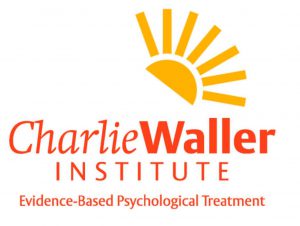This British Association for Behavioural and Cognitive Psychotherapies (BABCP) accredited course provides the training needed to qualify as a Cognitive Behavioural Therapist (CBT) with children and young people.
CBT practitioners assess and deliver high-intensity interventions for moderate mental health problems such as depression, OCD, PTSD and anxiety disorders.
Employment is generally through a ‘Recruit to Train’ (RTT) contract with an NHS or voluntary sector partner organisation for the duration of training, plus potentially further employment post-qualification. Interested candidates are encouraged to explore NHS jobs for ‘trainee cognitive-behavioural therapist’ positions.
Through this postgraduate training year, you will develop your skills with a mixture of taught content, role-play and skills practice teaching, as well as clinical work undertaken in a Children and Young People’s Mental Health (CYP MH) setting.
What Can I Expect from the Course?
The course runs over one calendar year, and consists of roughly 45 taught University days, 24 University supervision days, and 20 study days, alongside work (or self-arranged placement if self-funding) in a CYP MH service.
The course consists of 3 compulsory modules:
- Foundation Skills for Working with Children and Young People with Mental Health Problems
- Cognitive Behavioural Therapy for Anxiety Disorders in Children and Young People
- Cognitive Behavioural Therapy for Depression in Children and Young People
You will be taught through a variety of teaching methods including lectures, experiential skills, training workshops, self-directed learning, and group and individual clinical supervision. You will actively apply and develop the skills you learn in your trainee role within a mental health service.
Across the course, trainees are expected to undertake a minimum of 200 clinical contact hours with patients and receive 70 hours of supervision.
How is the Course Assessed?
The course is assessed through a combination of written and clinical assessments. Written assignments include essays and case reports. Clinical assignments include a minimum of 6 full-length clinical recordings with clients and a case presentation.
At the end of the course, students are also expected to demonstrate their learning and development through a portfolio.
Entry Requirements
For information on entry requirements for Recruit to Train positions, please consult the job specification advertised on NHS jobs. If you do not have a core profession you will need to complete a Knowledge Skills and Attitudes (KSA) portfolio – please see below and/or the NHS Jobs specification.
Entry requirements for self-funded or sponsored students are:
- Core professional training in mental health, as defined by BABCP. Please see the BABCP’s core profession list
- Or, completion of a KSA portfolio prior to entry onto the programme. Please see the BABCP’s KSA portfolio page for guidance on completion of KSA portfolio. Your KSA should be completed BEFORE interview
- Access to appropriate cases during training
- Access to appropriate clinical supervision
- Membership of BABCP once enrolled
Careers
Successful completion of the programme will mean that you are eligible to apply for accreditation with BABCP as a CBT therapist A qualified CBT therapist salary is typically equivalent to NHS band 6 or 7 pay, depending on the service and responsibilities of the role. For further details, please visit the Health Careers CBT therapist role profile.
How to Apply?
The Charlie Waller Institute usually offers one intake per year in February. The number of places available per cohort is dependent on NHS service funding.
Potential candidates may apply through job advertisements on NHS jobs. The University of Reading will review the application and a member of our team will be present on the interview panel.
Update July 2024- We are now registering interest for non-NHS funded places on this course. If you are interested in self-funding or being sponsored by your employer to attend this training, please email admissions-cwi@reading.ac.uk and the Admissions Tutor (email address in Further Information section below) for more details.
Criteria for this course are:
- Core professional training in mental health, as defined by BABCP. Please see the BABCP’s core profession list
- Or, completion of KSA (Knowledge, Skills and Attitudes) portfolio prior to entry onto the programme. Please see the BABCP’s KSA portfolio page for guidance on completion of KSA portfolio.
- Applicants must ensure that they meet requirements as per the BABCP, which includes:
-An honours degree or equivalent in a relevant field OR
-An honours degree or equivalent in an unrelated field AND at minimum 3 years of experience within the helping profession - Access to appropriate cases during training and access to weekly workplace supervision with a BABCP-accredited supervisor
- Membership of BABCP once enrolled
- Experience of working with children, young people and families
Further information
For further information on this programme, please contact Phillippa Burton, Admissions Tutor and Programme Director for CBT, at phillippa.burton@reading.ac.uk.

